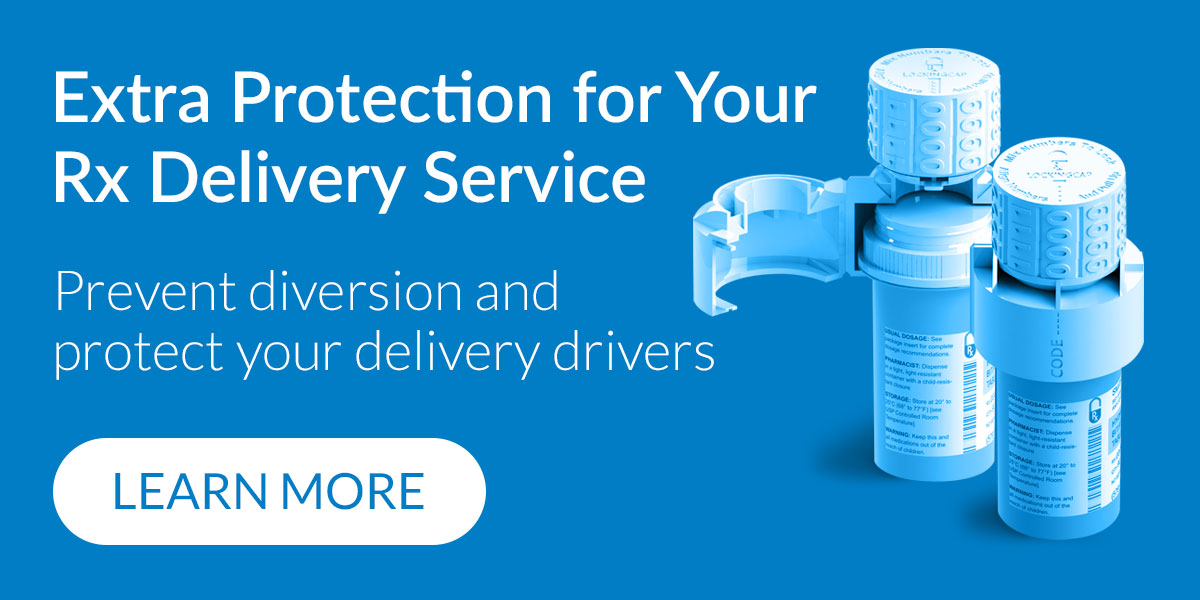Prescription drug delivery services have never been in higher demand than now. Couriers have seen a steep increase in residential demand during COVID-19 lockdowns, and there’s no indication this demand will slow or stop anytime soon.
As more patients rely on online pharmacies, pharmacy delivery services, and third-party courier services to deliver their medications in a safe, discreet, and timely manner, delivery services need to be aware of the regulatory issues involved with medication delivery.
What regulatory issues should you be aware of when delivering prescriptions?
Valid Prescriptions Only
First and foremost, there are Federal regulations regarding prescription delivery that you must abide by, such as:
No controlled substance that is a prescription drug may be delivered, distributed, or dispensed by means of the Internet without a valid prescription.
According to the Code of Federal Regulations (CFR) Title 21:
“it is unlawful for any person to knowingly or intentionally fill a prescription for a controlled substance that was issued in a manner that constitutes dispensing by means of the Internet unless such person is a pharmacist who is acting in the usual course of his professional practice and is acting on behalf of a pharmacy whose registration has been modified under sections 1301.13 and 1301.19 of this chapter to authorize it to operate as an online pharmacy.”
In other words, no prescription = no delivery.
Valid Home Addresses
When it comes to prescription delivery, addresses matter. Pay close attention to out-of-state addresses or P.O. Boxes, in particular. Most states require a signature for every prescription delivered.
Out of State Addresses
If it’s an out-of-state address, you’ll want to make sure that you are legally able to deliver or ship the medication. Some states may not allow out-of-state medication delivery without a mail-order pharmacy license.
P.O. Box
Be alert for P.O. Box addresses when sending prescriptions that require a patient’s signature to be captured by the delivery driver. P.O. Boxes are not acceptable addresses in these cases since nobody is available to receive the package physically.
Include the Proper Paperwork
Include all paperwork, such as HIPAA privacy notices, MedGuides, patient information sheets, or any state- specific notices.
For example, in Texas, prescriptions delivered to a patient’s home must include written information that would otherwise be given orally, along with a specific statement instructing the patient to read the information provided before taking the medication, and instructions to call the pharmacy with any questions.
Delivering Controlled Substances
The United States Postal Service has regulations regarding mailing controlled substances. Licensed pharmacies may mail prescription controlled substances, as long as they’re labeled per federal and state regulations.
Controlled substance prescriptions must be packaged in a plain outer package free of markings that may indicate the contents' nature.
Extra Protection Against Liabilities
While it’s not a federal or state regulation, an additional security layer for controlled substances, such as a locking cap or other security device, can help protect pharmacies and delivery drivers/couriers against liabilities and allegations of diversion.
Rx Delivery is the Future of Prescription Dispensing
The COVID pandemic changed the way the pharmaceutical sector is doing business.
According to the American Pharmacists Association, CVS Health saw a 10-fold increase in pharmacy home deliveries during the first 3 months of 2020. Walgreens saw a boost in demand for prescription delivery during the pandemic, and Express Scripts said it has been processing more home-delivery orders since stay-at-home measures began. Ensuring you’re up-to-date on prescription delivery regulations is key to meeting patients' needs during COVID-19 and beyond.




